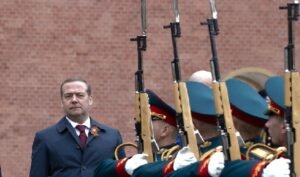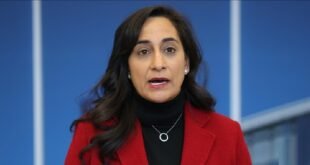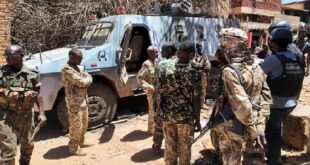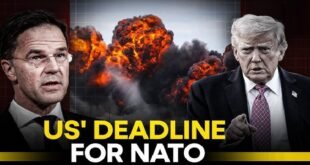29-05-2025
DOHA, QATAR: Inside India’s Parliament, they are sworn rivals, with the opposition raising questions and attacking the government over its policies, and the ruling Bharatiya Janata Party (BJP) of Prime Minister Narendra Modi defending itself – and the two sides rarely meet.
Over the past few days, however, they have. Their shared concern: national security allegedly threatened by neighboring Pakistan.
 A team of Indian Parliament members, including many opposition legislators, visited Qatar over the past four days as part of a broader diplomatic outreach by New Delhi to try to shape global opinion in the aftermath of the most intense military confrontation between the South Asian neighbors since 1999.
A team of Indian Parliament members, including many opposition legislators, visited Qatar over the past four days as part of a broader diplomatic outreach by New Delhi to try to shape global opinion in the aftermath of the most intense military confrontation between the South Asian neighbors since 1999.
New Delhi blames Islamabad for the killing of 26 people most of them tourists in Indian-administered Kashmir’s resort town of Pahalgam on April 22, which led to days of exchange of missiles and drone explosives between the two nuclear powers, before they agreed to a ceasefire.
Pakistan has rejected India’s allegations.
“India has been hurt by an unprecedented attack on India’s soul, the attack that happened in Pahalgam, which has shaken every Indian,” said Supriya Sule, a parliamentarian from the opposition Nationalist Congress Party, who led the team of Indian MPs visiting Doha.
Her team is one of seven dispatched by the Modi government to more than 30 countries on an “outreach program” to “sensitize” other governments on Pakistan’s alleged support to “terror groups” accused of carrying out several deadly attacks in Kashmir and other parts of India for decades. The delegations consist of MPs and retired diplomats.
Sule’s team landed in the Qatari capital on Saturday night and held discussions with the Gulf state’s officials for two days before heading to South Africa on Tuesday. The MPs will also visit Ethiopia and Egypt.
 Addressing reporters during a news conference held by the Indian delegation in a seaside hotel in Doha on Monday, Sule said their aim is to “create a global opinion” against Pakistan. She insisted there was “enough evidence” linking Pakistan to the Pahalgam killings, in which the attackers picked out men and then identified them by religion before shooting them dead.
Addressing reporters during a news conference held by the Indian delegation in a seaside hotel in Doha on Monday, Sule said their aim is to “create a global opinion” against Pakistan. She insisted there was “enough evidence” linking Pakistan to the Pahalgam killings, in which the attackers picked out men and then identified them by religion before shooting them dead.
The Pahalgam attack, the deadliest on tourists in the disputed Kashmir region in decades, was claimed by The Resistance Front (TRF), a relatively unknown group that Indian agencies say acts as a front for Lashkar-e-Taiba (LeT), a Pakistan-based armed group.
India accuses Pakistan of using groups like the LeT to support an armed secessionist movement in Indian-administered Kashmir. Multiple governments, including the United States and India, also accuse the LeT and other Pakistan-based armed groups of carrying out attacks in Indian cities, far from Kashmir.
“We do not differentiate between a terrorist state and a terrorist,” Rajiv Pratap Rudy, BJP MP and former federal minister, said during the news conference, stressing that the delegation is “preventive diplomacy” that seeks to unite the world against “terror”.
Pakistan says it provides only diplomatic and moral support to the Kashmiri separatist movement. And though it accepts that the 2008 Mumbai attacks, in which more than 160 people were killed, might have been planned from Pakistan, it insists that the country’s government and military had no role.
India and Pakistan both control parts of Kashmir, while China also administers two slivers of the region. India claims all of Kashmir, while Pakistan claims the part controlled by India, but not the territory held by China, its ally.
 Pressmediaofindia
Pressmediaofindia




